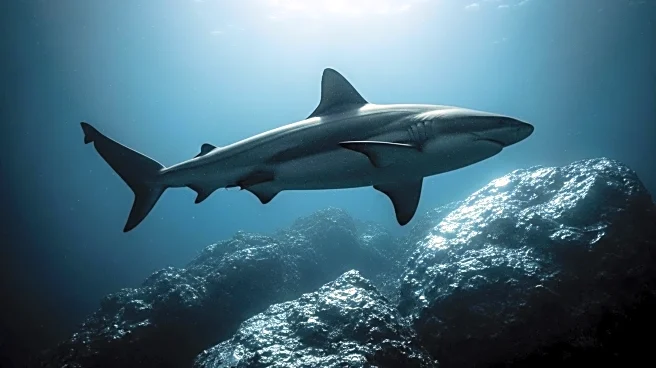What's Happening?
Researchers from the University of Hawai'i at Mānoa have published a study in Current Biology, revealing that deep-sea mining poses a significant threat to thirty species of sharks, rays, and chimaeras. These species' habitats overlap with areas designated for potential deep-sea mining, which could disrupt the seafloor and discharge sediment plumes into the water. The study, led by oceanography graduate student Aaron Judah, emphasizes the risk to these species, many of which are already threatened with extinction due to human activities. The research involved overlaying global maps of species ranges with mining contract areas, assessing the vulnerability of species based on their reproductive habits and diving depths.
Why It's Important?
The study underscores the potential ecological impact of deep-sea mining on marine life, particularly on sharks and their relatives, which are among the most threatened vertebrate groups due to overfishing. The findings highlight the need for conservation efforts and environmental impact assessments to mitigate the risks posed by mining activities. The research calls for the establishment of monitoring programs and protected areas to safeguard these species. The implications extend beyond the immediate mining zones, potentially affecting ecosystems near Hawai'i due to the mobility of these species.
What's Next?
The study recommends that the International Seabed Authority incorporate these findings into their environmental impact assessments and regulations. Researchers suggest that contractors executing scientific baseline assessments consider the vulnerability of these species. The ongoing discussions about environmental risks from deep-sea mining should include considerations for the health of shark populations. Further research is needed to identify additional species at risk and to develop strategies for minimizing mining impacts on marine ecosystems.
Beyond the Headlines
The study highlights the ethical responsibility of balancing economic interests with environmental conservation. The potential long-term impacts of deep-sea mining on marine biodiversity and the cultural significance of sharks in human identity are critical considerations. The research advocates for a precautionary approach to deep-sea mining, emphasizing the importance of sustainable practices that protect vulnerable species and their habitats.











